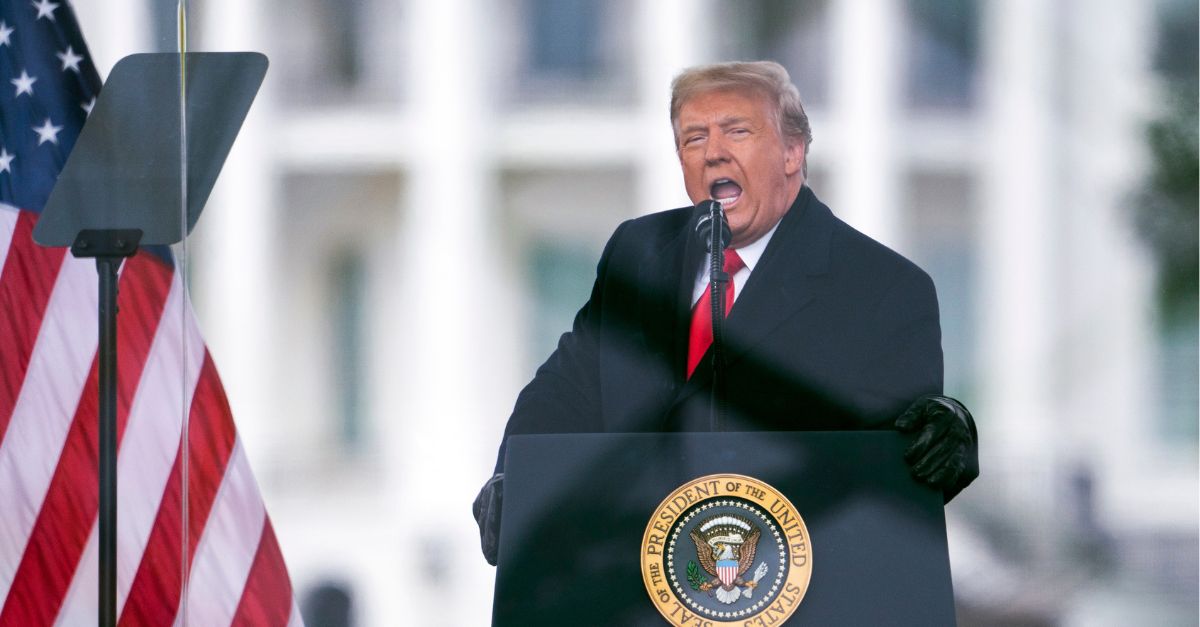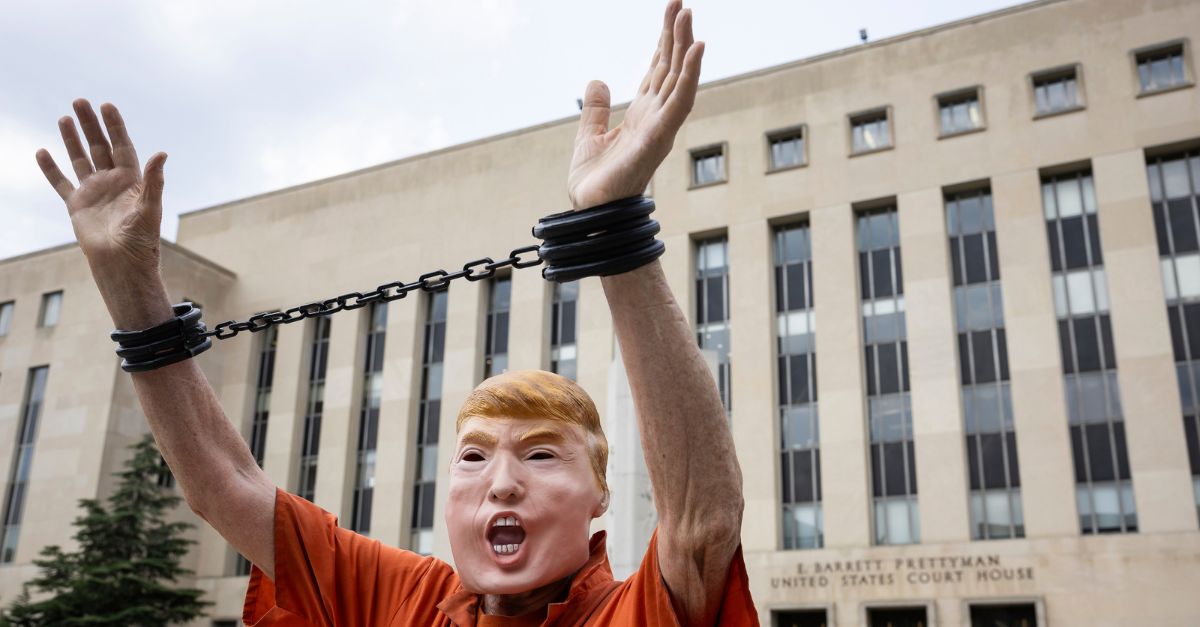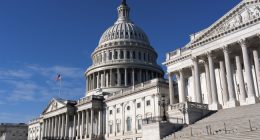
FILE – President Donald Trump speaks during a rally protesting the electoral college certification of Joe Biden as President in Washington, Jan. 6, 2021. (AP Photo/Evan Vucci, File)
Former President Donald Trump is expected to appear in federal court in Washington, D.C. on Thursday for the first time to face charges related to his alleged conspiracy to subvert the results of the 2020 election.
Trump may appear in person for his arraignment, according to The Washington Post. But he could also opt to appear virtually, a decision that may leave the anticipated horde of reporters, spectators, supporters and possible protesters gathered at the E. Barrett Prettyman Courthouse vastly disappointed.
Whether the nation’s 45th president shows up in person or not, the proceedings will remain roughly the same as they have during his earlier arraignments for other unrelated indictments.
Trump is slated for a 4 p.m. hearing before U.S. Magistrate Judge Moxila A. Upadhyaya. Once things get underway, federal prosecutors will begin by outlining the charges: Trump was indicted on four felony counts including conspiracy to defraud the United States, conspiracy to corruptly obstruct and impede the congressional proceeding on Jan. 6, 2021; conspiracy against the right to vote and have one’s vote counted; and obstruction of, and attempt to obstruct an official proceeding.
Trump, who has hotly contested the indictment as well as the Justice Department’s probe of Jan. 6 since its inception, will then enter his plea. He is expected to plead not guilty. Trump’s lawyer John Lauro told CBS Mornings on Tuesday that Trump has a “smoking gun of innocence” to support his defense.
Terms of bail are also set during arraignment hearings and then, and it is expected that an initial schedule for the parties to submit their pretrial motions will be broached. Deadlines for discovery may also be set. While the arraignment marks an important opening moment for both the Justice Department and the former president and his defense team, this hearing is ultimately less consequential than ones yet to come where attorneys will hash out what will be considered admissible at trial once it is finally underway.
Trump’s case has been randomly assigned to U.S. District Judge Tanya Chutkan. Chutkan has considerable experience in the realm of Jan. 6 cases, as she has presided over a number of trials involving Jan. 6 defendants.
She has also been tougher on Trump than he may like.
Read Related Also: Woman who claimed she ‘saved her babies’ by stabbing them to death pleads guilty
In November 2021, for example, Chutkan denied Trump’s request to stop congressional investigators from receiving a swath of records tied to the Jan. 6 attack on the U.S. Capitol. Trump pointed to what he called “executive privilege” as the reason he was allowed to keep his communications covert, but Chutkan rebuffed him — and sharply. Executive privilege protects current presidents, not former ones, she ruled, adding that “presidents are not kings, and plaintiff is not president.”
The Aug. 1 indictment is the third indictment for Trump this year. He pleaded not guilty to 35 felony fraud charges in New York in April. In June, the former president entered a not guilty plea to 37 federal felony charges for his alleged retention of classified materials after leaving the White House. Special Counsel Jack Smith, who is leading that case, added three more counts to the Florida indictment late last month.

David Barrows of Washington, D.C. impersonates former President Donald Trump in handcuffs as he demonstrates outside the E. Barrett Prettyman U.S. Courthouse in Washington, D.C., Aug. 2, 2023. (Francis Chung/POLITICO via AP Images)
As it went in Florida, federal prosecutors in Washington, D.C. have not requested Trump be held in jail prior to trial, which could be weeks or months away. Pretrial detention factors for a typical defendant are usually decided by weighing a person’s violent criminal record, whether they pose a flight risk or are a potential danger to the community. Before he leaves the courthouse, Trump’s fingerprints will also be collected.
Prosecutors have accused the former president of engaging in a sprawling conspiracy to overturn the results of the 2020 election through the dissemination of lies about the results even while he knew his claims were meritless and was informed by his advisors multiple times of the same.
According to the 45-page indictment, the scheme involved at least six co-conspirators and at the center of their efforts was a corrupt plan to advance “fake electors” in key election battleground states when state officials could not be swayed to swing the election in Trump’s favor. Though the fake slates were ultimately ignored, federal prosecutors maintain Trump’s efforts were central to the conspiracy to stop elector slates for President Joe Biden from being counted when Congress met on Jan. 6, 2021. Prosecutors also accuse the former president of engaging in a sweeping pressure campaign with his co-conspirators that targeted then-Vice President Mike Pence. Trump also used the Justice Department itself as a means to pursue the scheme, the indictment alleges.
Notably, the charge of “conspiracy against the right to vote and to have one’s vote counted” invokes a criminal statute with historic roots in the Ku Klux Klan Act that is often used to prosecute hate crimes and other violations of people’s civil and constitutional rights.
This story is developing.
Have a tip we should know? [email protected]








